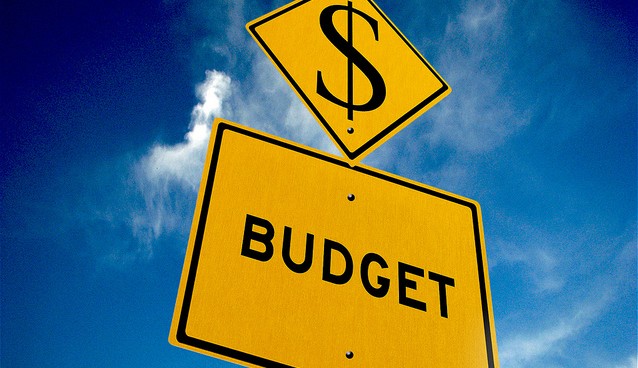 The 2013 budget handed down last night by Treasurer Wayne Swan is being met with mixed reviews this morning by Christian organisations around the country.
The 2013 budget handed down last night by Treasurer Wayne Swan is being met with mixed reviews this morning by Christian organisations around the country.
Head of Bible Society Australia’s Sophia Think Tank, Dr David Wilson says, when looking at the Budget from a Biblical perspective Christians should consider how we are using the wealth that God has allowed us to have.
“Psalm 122 instructs us to pray for the prosperity of our cities. This includes our economic health because God is interested in the economic wellbeing of our Nation, not to store up wealth and to spend it on ourselves, but to be wise stewards of our wealth so that people of our Nation, and indeed beyond our shores, can be liberated.”
Heralded as ‘modest’, ‘sober’ and ultimately based around two iconic social reforms – education and disability, here’s what Christian organisations are saying about the 2013-14 Federal Budget:
>> On disability
$14.3 billion has been committed over seven years to ensure full funding of Disability Care Australia (previously known as the National Disability Insurance Scheme). Anglicare Australia’s Executive Director Kasy Chambers says “We truly feel that this will be a life changing event for people with disabilities, their families and carers, and for our whole community as we are able to provide the support and dignity that someone living in our wealthy nation is entitled to.”
>> On education
Christian Schools Australia CEO Stephen O’Doherty said education in this year’s budget included “landmark social reform” for education, stating Christian schools would “definitely benefit” from the reforms and calling on the State and Territory governments to sign on.
The Government has committed an additional $9.8 billion in funding to school education over the next six years to support the proposed reforms to education funding and the National Plan for School Improvement.
“As part of the proposals the Federal Government is offering to pay around 65 percent of the additional investment needed to fund all schools according to the model – essentially a 2 for 1 offer for all states and territories,” says Christian Schools Australia on their blog this morning.
>> On welfare and families
UnitingCare Australia National Director Lin Hatfield Dodds labeled the budget’s welfare tactics as providing “modest measures…that begin to redistribute existing revenue and scale back wasteful tax concessions,” while the Salvation Army is disappointed in the Government’s failure to provide “significant relief” to struggling individuals and families.
Honing in on the Newstart income free threshold increase of $19 per week, Salvation Army National Secretary Major Kelvin Alley called it “superficial at best”, providing “little comfort” to those they serve.
Anglicare Australia’s Executive Director Kasy Chambers says whilst it is no surprise there was no increase for the NewStart allowance, “it is still bitterly disappointing”.
Similarly Superintendent of Wesley Mission, Keith Garner says there was little in the budget for the homeless and homeless families, with unemployment benefits taking a backseat in this budget.
“I remain resolute in my call on both the Government and Opposition to make a recommitment to halving homelessness numbers by 2020,” said Dr Garner.
Hatfield Dodds from UnitingCare Australia says the decision to axe the baby bonus, instead funneling additional payments through to Family Tax Benefit A is welcomed.
“Scaling the baby bonus down, from $5000 to $2000 for the first child and tying this payment to the Family Tax Benefit A better targets families in need.”
Chambers agrees, calling the Baby Bonus a “flawed policy that has little referece to child well-being”.
“Unfortunately, whilst [the baby bonus] was very poor policy some poorer families will have come to rely on it as a valuable part of their income and some short-term readjustment may be painful.”
>> On foreign aid
World Vision Australia chief executive Tim Costello welcomed the Government’s decision to increase this year’s aid budget to 0.37 per cent of national income. But Mr Costello said closer analysis of the Budget details also revealed $1.9 billion was missing as a result of the Government deferring Australia’s commitment to reach 0.5 per cent of GNI by 2016.
“The decision now means $4.8 billion has been eliminated from Australia’s aid program between the years 2012-13 to 2016-17,” says World Vision.
Despite the bad news about the delay both Mr Costello and Ben Thurley from Micah Challenge welcomed a number of positive outcomes for foreign aid from the Budget, including:
- an increase of funding to water and sanitation from 3 per cent to 5 per cent. This represents a 70% increase – from $164 million last year to $279 million in this budget.
- new budget measure to invest $391 million over the next four years, to accelerate progress towards achieving the Millennium Development Goals in Asia and the Pacific.
“This announcement means 900,000 additional women in our region each year will benefit from improved maternal and child health services, and an extra 1.2 million children will have better access to quality education,” says World Vision.
“It’s the kind of thing Australian aid does so well. When it’s not being delayed or diverted,” says Thurley on the Micah Challenge blog today.
Matthew Anslow, National Young Adults Coordinator of Tear Australia, was more scathing. In an opinion piece published today on the ABC Religion and Ethics blog, he called the diversion of foreign aid towards the domestic asylum seeker program ‘immorality’, and ‘an indication that our political vision of what is morally important is at least blurred, if not badly distorted’.
Email This Story
Why not send this to a friend?

